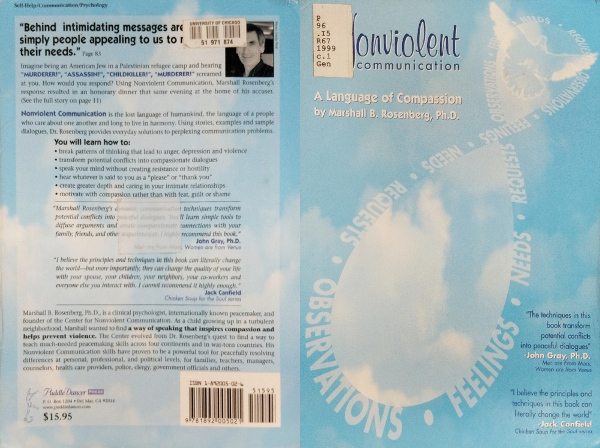I will write more later this week about the topic, but as I wrote in my bio elsewhere, I was…
on a mission, this year, to understand people better, learn from each interaction, become better at communicating and reading emotions, form closer better relationships.
What would be a better way to end this year than by finally reading this enlightening book about communicating effectively with fellow human beings. This is the second book I read this year among the six recommended in the original Startup Class reading list (which I shelved over three years ago; I can say I am halfway through as I do not plan to read The Facebook Effect, while 15 Commitments has guided me so many times already in the past).
As I made progress understanding people better, I faced many unique situations in which I was not clear whether I could have communicated better. I came to acknowledge that I was not the best at reading people but was enthusiastic about improving myself whenever the other person agreed to help. At times, I was left completely confused about others’ behavior and their lack of interest in helping me understand (sometimes not even responding to my direct questions, let alone agreeing to meeting in person to talk things over). Not surprisingly, I ended up analyzing and judging people in these circumstances. I had a hunch that I was missing something that I should know about and had not learned in a whole year’s effort.
This book gave me some answers—I was not expressing my feelings/emotions and needs clearly, especially the latter. MBR writes:
Analyses of others are actually expressions of our own needs and values.
Sometimes I was not making myself clear what I wanted when requesting others’ time and attention. Other times, though I noticed that I was becoming a better listener, I was not listening (and asking) for others’ feelings and needs to connect with them better.
The key takeaway from the book is to express honestly and receive empathically using the four components of the NVC model:
- observation without judgment or evaluation,
- feelings,
- needs connected to those feelings, and
- specific requests.
Among things that I learned from this book, a few stand out:
- the cost of being unclear about what I want
- the difference between a request and a demand
- how the cause of anger with someone lies in my own thinking disconnected from what I need and not getting from them
- that it will take time to train myself to frame my thinking in terms of unmet needs instead of judgments of other people and it is okay to take that time
- how to appreciate someone
- that I currently lack a good vocabulary for feelings and need to build it over time
There is a vintage video from 1993 of Marshall Rosenberg (~28 min) demonstrating the effectiveness of NVC in interpersonal relationships available at NVC Academy that I can recommend watching to see NVC in action.
I learned a lot from this book and felt a sense of relief about many questions I was struggling with even up to last week when I got the push to read this book. I plan to apply the model in my everyday life. One question that I did not find the answer to in this book is how to reconnect with people who do not respond at all (my current judgment-ridden outlook is to not waste time on them but it feels both harsh and selfish and I hope to change that sometime).
I read the first edition of the book as it was easily available in the university library. If you are looking to read the book, the third and latest edition is available on Amazon.
